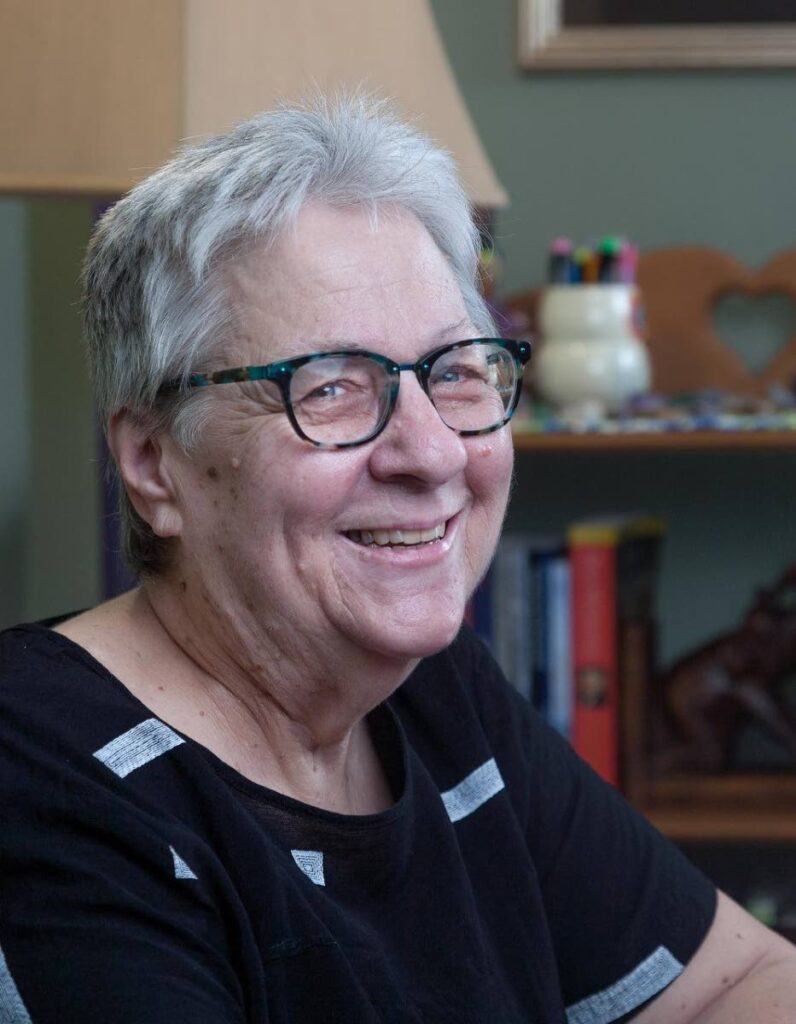The death I knew was coming

DEBBIE JACOB
THERE IS nothing that could have prepared me for Kendall Paul’s death, and yet I had resigned myself to that unfortunate ending for him long ago. Kendall, featured in Wishing for Wings as Peter, because his case had not been heard at the time I wrote the book, was shot and killed by police on May 15.
It’s easy to speak about the successful young men who attended my academic classes, skill-based programmes or debates in prison, but it is the Kendall Pauls – the ones I fight so hard for and lose – who make me dig deeper and become more committed to the young men who end up in prison.
Kendall came to my CXC English language class because his friend Jahmai believed in him and wanted him to get his education. Three of his eight passes came from my classes. Quiet, distant, angry and often depressed, Kendall took long to trust me. He spent much of his time in lockdown and had confrontations with prison officers. They said, “You don’t see the real Kendall Paul.”
I felt they didn’t see the real Kendall, the intelligent teenager who loved reading and English and wanted to be a lawyer. It was a big dream for a teenager who had been brought from another Caribbean country by his mother and left here with little supervision.
He belonged to two gangs, one in the Beetham and one in San Juan, and by 16 he had been charged for murder. Kendall told me, “I believed that guy was coming to kill me. After I shot him, I realised he didn’t have a gun on him.”
He knew that did not excuse his actions. Kendall pleaded guilty and his charge got reduced to manslaughter. When Kendall appeared before Justice Gillian Lucky, she sent a message asking me to come to court. I told her I thought Kendall could turn his life around.
When he was sentenced, he went to the Port of Spain Prison where I ran programmes. Prisons and the court complied with his request to go there because they believed his connection to me was important.
Justice Lucky put measures in place for Kendall to check in with her court on his release. When he entered the “free world,” Kendall called me and said, “I believe you can do good or you can do bad wherever you live. It’s a choice.”
He wanted to return to the Beetham. I thought he needed a fresh start somewhere else, but I put measures in place for him so he would get positive support. Kendall said my contact had too many rules.
He never called me again so I knew what path Kendall had taken. He surfaced on social media and the television as one of those flashy stories where Ian Alleyne accompanies the police to make an arrest.
Two caring prison officers, who always supported my prison programmes, took me to Golden Grove Prison to see Kendall. They had him brought from Remand Prison to Golden Grove’s administration building. Kendall said he was waiting for someone to post his bail. I begged him to stay in Remand and do my certified barbering class.
“You can have your own business when you get out.”
He refused my offer.
The prison officers with me asked questions that should have forced him back to some semblance of reality, but Kendall dug in his heels. He was always stubborn.
He said, “If I am unpredictable and keep moving around, I can survive.”
I shook my head. “That’s not sustainable.”
The two officers and I watched Kendall in handcuffs return to his cell. They said, “You know he is lost, right?”
I said, “Yes, I know.”
As hard as I had tried, I couldn’t find the light in his eyes. That glimmer of hope I had once seen and nurtured had been snuffed out.
I remembered that day in YTC when Kendall learned he couldn’t practise law because he had been convicted of a crime.
I said, “I’ll get you in a lawyer’s office, and we’ll work to change the law.”
He laughed nervously. That day too I saw the light disappear from his eyes. It hadn’t seemed like the beginning of the end because in my world life always offers hope.
Now, there are no regrets, no tears, no anger. I have learned sadness can be managed. Memories are like threads of a tapestry unravelling over time. I won’t risk cutting or pulling those threads because the picture, however faded or fragile, holds meaning for me.
Kendall Paul was 32 when he died.


Comments
"The death I knew was coming"